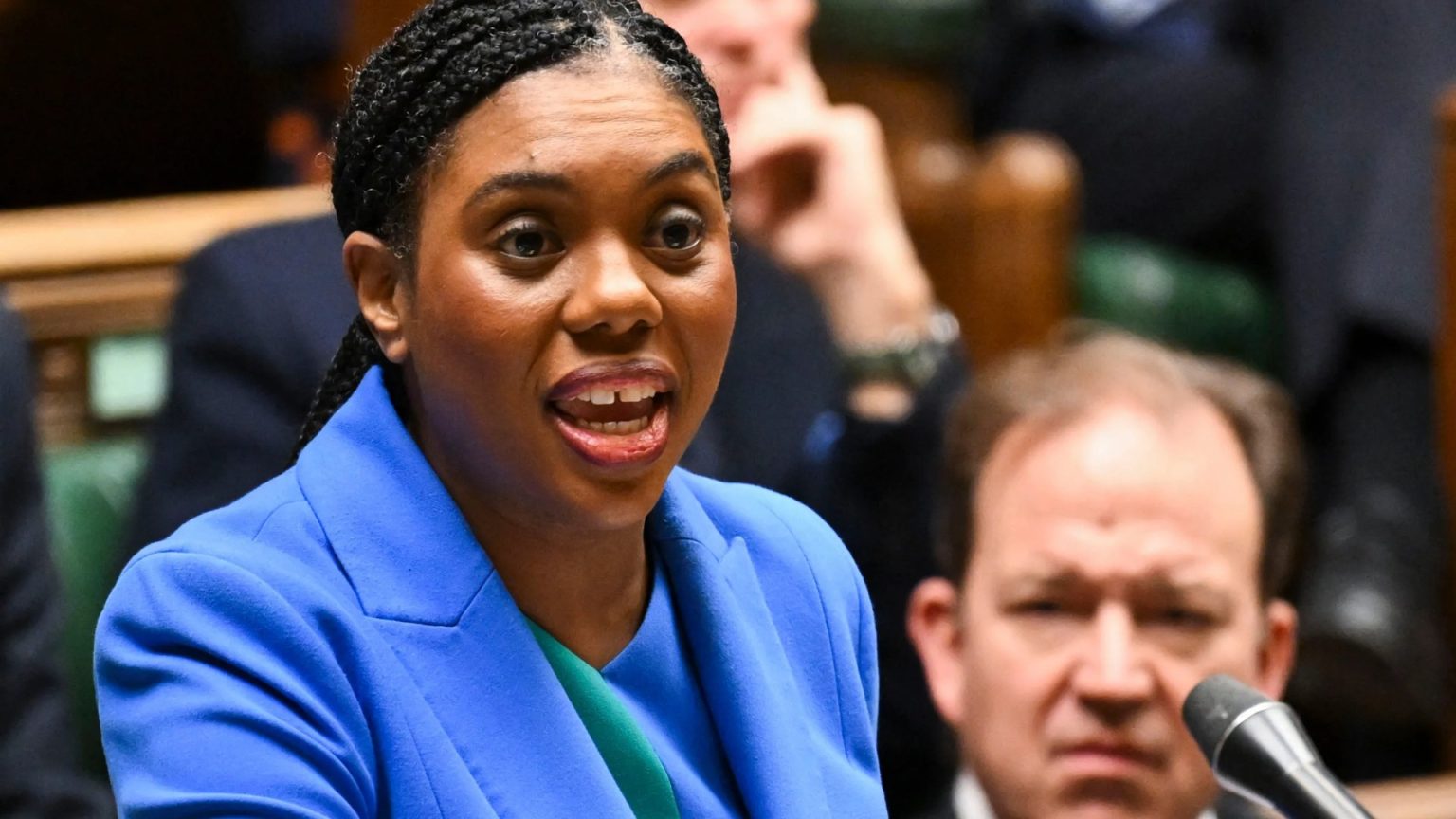Kemi Badenoch, a prominent figure in the Conservative Party, has launched a scathing critique of the Labour Party and its leader, Sir Keir Starmer, accusing them of lacking a coherent plan for governing the country. She argues that Labour’s absence of a well-defined strategy in opposition leaves them vulnerable to adopting ill-conceived policies presented by civil servants upon assuming power. Badenoch highlights specific examples, such as proposals to eliminate universal winter fuel payments and implement taxes on family farms, as evidence of Labour’s susceptibility to bureaucratic influence and their alleged disregard for the potential negative impact on the public. She contrasts this with the Conservative approach, claiming they repeatedly rejected these same proposals due to concerns about their potential harm. Badenoch asserts that these instances demonstrate a broader pattern of Labour’s reactive and unplanned approach to policy-making, which she believes ultimately undermines their credibility as a viable governing force.
Badenoch’s attack goes beyond simply criticizing Labour’s policy choices; it also aims to expose what she sees as a fundamental flaw in their political philosophy. She argues that their lack of a pre-defined vision for the country forces them to rely on readily available solutions presented by the civil service, regardless of their suitability or potential consequences. This, according to Badenoch, highlights a lack of independent thought and a willingness to accept the status quo, which she believes is detrimental to effective governance. She contends that a true governing party should enter office with a clear set of principles and objectives, allowing them to critically evaluate existing proposals and develop their own innovative solutions rather than simply adopting those presented to them.
Furthermore, Badenoch broadens her criticism to encompass the political establishment as a whole, accusing politicians of all stripes of failing to be honest with the British public about the nation’s economic challenges. She argues that successive governments have avoided acknowledging the reality of declining living standards and have instead perpetuated a narrative of progress that does not reflect the lived experiences of many citizens. This lack of transparency, according to Badenoch, has eroded public trust in politicians and contributed to a sense of disillusionment with the political process. She presents herself and the Conservative Party as the only ones willing to confront this difficult truth and offer realistic solutions to address the underlying economic issues.
Badenoch emphasizes the importance of long-term planning and a clear vision for the future, contrasting the Conservative approach with what she perceives as Labour’s short-sightedness. She underscores the need for policies to be grounded in a comprehensive understanding of the challenges facing the country and aligned with a broader strategic vision. Badenoch suggests that the Conservatives, unlike Labour, possess this long-term perspective and are therefore better equipped to navigate the complex issues facing the nation. She frames the Conservative Party as the party of responsible governance, capable of making difficult decisions and implementing sustainable solutions, while portraying Labour as lacking both the vision and the competence to effectively lead the country.
This attack on Labour is not an isolated incident but rather part of a broader Conservative strategy to regain public trust and position themselves as the only viable option for governing the UK. By highlighting Labour’s perceived weaknesses and contrasting them with their own purported strengths, the Conservatives aim to present themselves as the more competent and trustworthy party. This rhetoric also serves to deflect attention from the Conservative Party’s own challenges and controversies, including internal divisions and declining public support. By focusing on criticizing Labour, the Conservatives hope to shift the narrative and regain the political initiative.
Finally, Badenoch’s assertion about Labour accepting “whatever they’re given in government” reflects a deeper concern about the influence of the civil service on policy-making. This concern often arises from the perceived power of unelected officials to shape government agendas, potentially at the expense of elected representatives’ accountability to the public. By raising this issue, Badenoch taps into a broader debate about the balance of power between elected officials and the civil service, implicitly positioning the Conservatives as defenders of democratic principles and guardians against bureaucratic overreach. This line of attack serves to further differentiate the Conservatives from Labour, framing them as the party more attuned to the concerns of ordinary citizens and less susceptible to the influence of unelected officials. The mention of her blocked bid for a national inquiry into child rape gangs, while seemingly unrelated, further reinforces this image of her fighting against established institutions and for the interests of the vulnerable.




